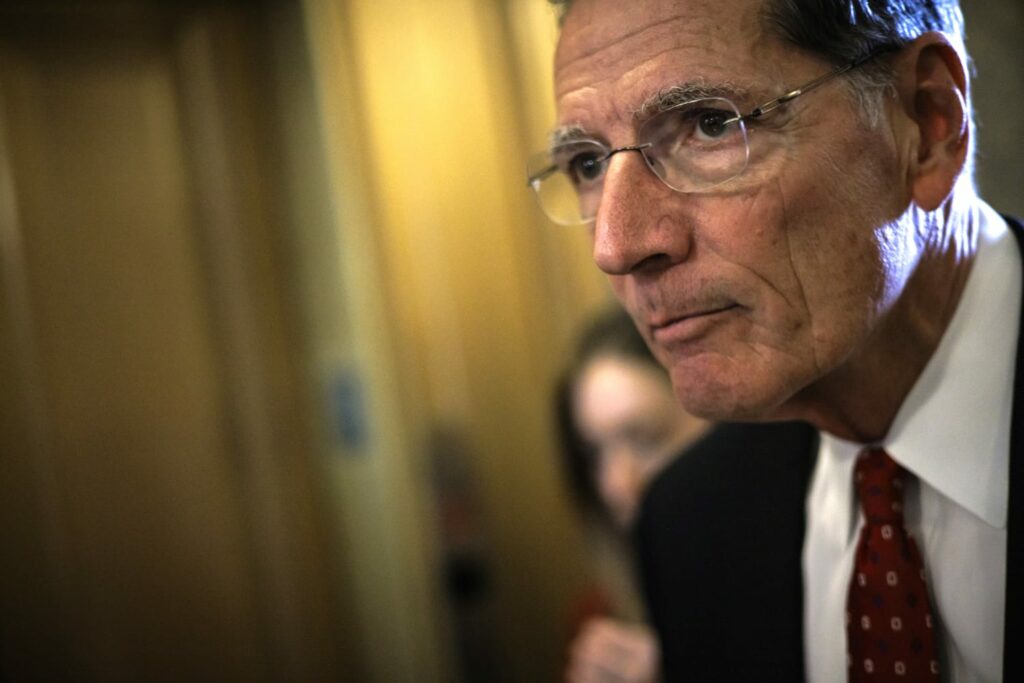U.S. Senator John Barrasso (R-WY) is introducing legislation to eliminate prohibitions at international financial institutions that do not support traditional energy projects, including coal, natural gas, oil, and civil nuclear energy.
Over 675 million people in developing countries around the world are in desperate need of a stable supply of energy and reliable electricity in order to combat global poverty. International financial institutions, like the World Bank, have burdensome restrictions and regulations in place that restrict critical energy projects to address this need. This bill would eliminate these prohibitions and cut U.S. funding to the World Bank until the organization promotes the financing of coal, oil, natural gas, and nuclear energy projects.
“Developing countries desperately need affordable and reliable energy. Rather than promote valuable energy projects, international financial institutions like the World Bank are boycotting coal power generation, oil and gas production, and nuclear energy projects” said Senator Barrasso. “This bill will force the hand of the World Bank and any financial institutions that choose to play politics with the lives of those dependent on these critical energy projects.”
Co-sponsors of this legislation include U.S. Senators Cynthia Lummis (R-WY), Ted Cruz (R-TX), and Dan Sullivan (R-AK).
“Much of the developing world desperately needs access to the affordable and reliable energy produced right here at home, yet financial institutions like the World Bank continue to drown coal, oil, natural gas and nuclear projects in onerous regulations and have little regard for the consequences,” said Senator Lummis. “We cannot allow these financial institutions to play politics when the stakes are this high, and our bill ensures they cannot continue playing games when lives are on the line.”
“The people most negatively impacted by the war on traditional energy sources are those experiencing poverty,” Senator Sullivan said. “Instead of working to lift people across the globe out of poverty, the World Bank and other financial institutions are playing politics by catering to a far-left activist agenda that forces the most vulnerable people into a cycle of perpetual poverty. This legislation will hold these financial institutions accountable.”
Background
On January 27, 2021, the Biden Administration signed an executive order requiring the Secretary of Treasury to develop a strategy for how the voice and vote of the United States can be used in the international financial institutions, including the World Bank Group and the International Monetary Fund, to promote financing aligned with the goals of the Paris Agreement. It also directs development of a plan to end international financing of carbon-intensive fossil fuel-based energy, which by its very nature, will hurt the poorest of the poor.
This bill:
- Requires the Secretary of Treasury to work with the Department of Energy, State Department, the Export-Import Bank, and the U.S. International Development Finance Corporation to identify ways to promote international financing of energy projects to help developing countries access affordable and reliable power.
- Directs the U.S. Executive Directors at each international financial institution to use the voice, vote, and influenced of the U.S. to oppose prohibitions on the financing of coal, oil, natural gas, and civil nuclear energy projects and to rescind existing ones.
- Instructs the U.S. Executive Director at the Word Bank to immediately eliminate the World Bank’s restrictions on coal power generation, upstream oil and gas exploration and projection, and nuclear energy projects.
- Cuts U.S. funding to the World Bank by 50% until the Secretary of Treasury certifies the World Bank has:
- Rescinded the rules, regulations, policies, and guidelines prohibiting the financing of coal, oil, natural gas, or nuclear energy projects, and
- Put into effect a policy to promote the financing of coal, oil, natural gas, and nuclear energy.










